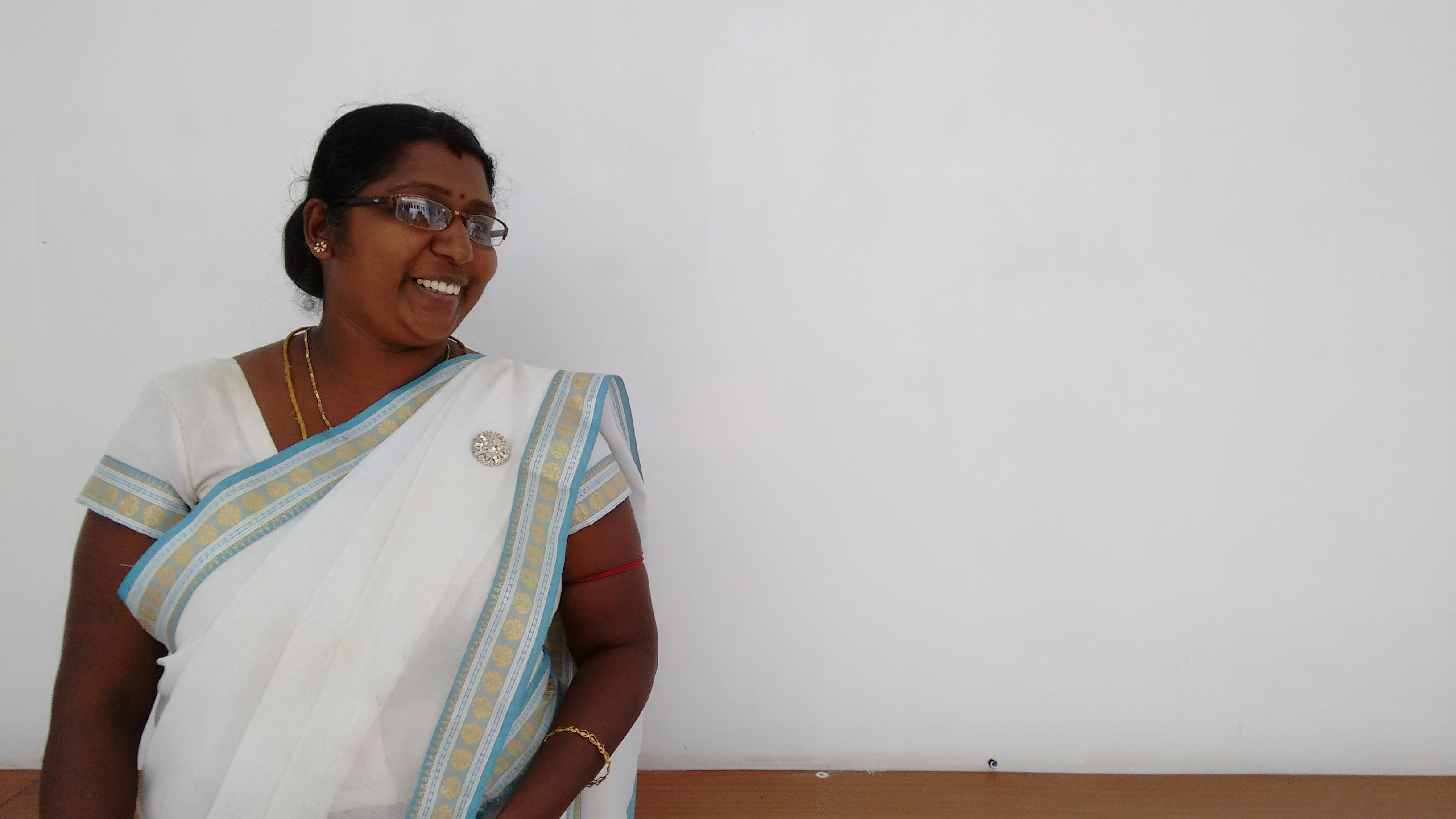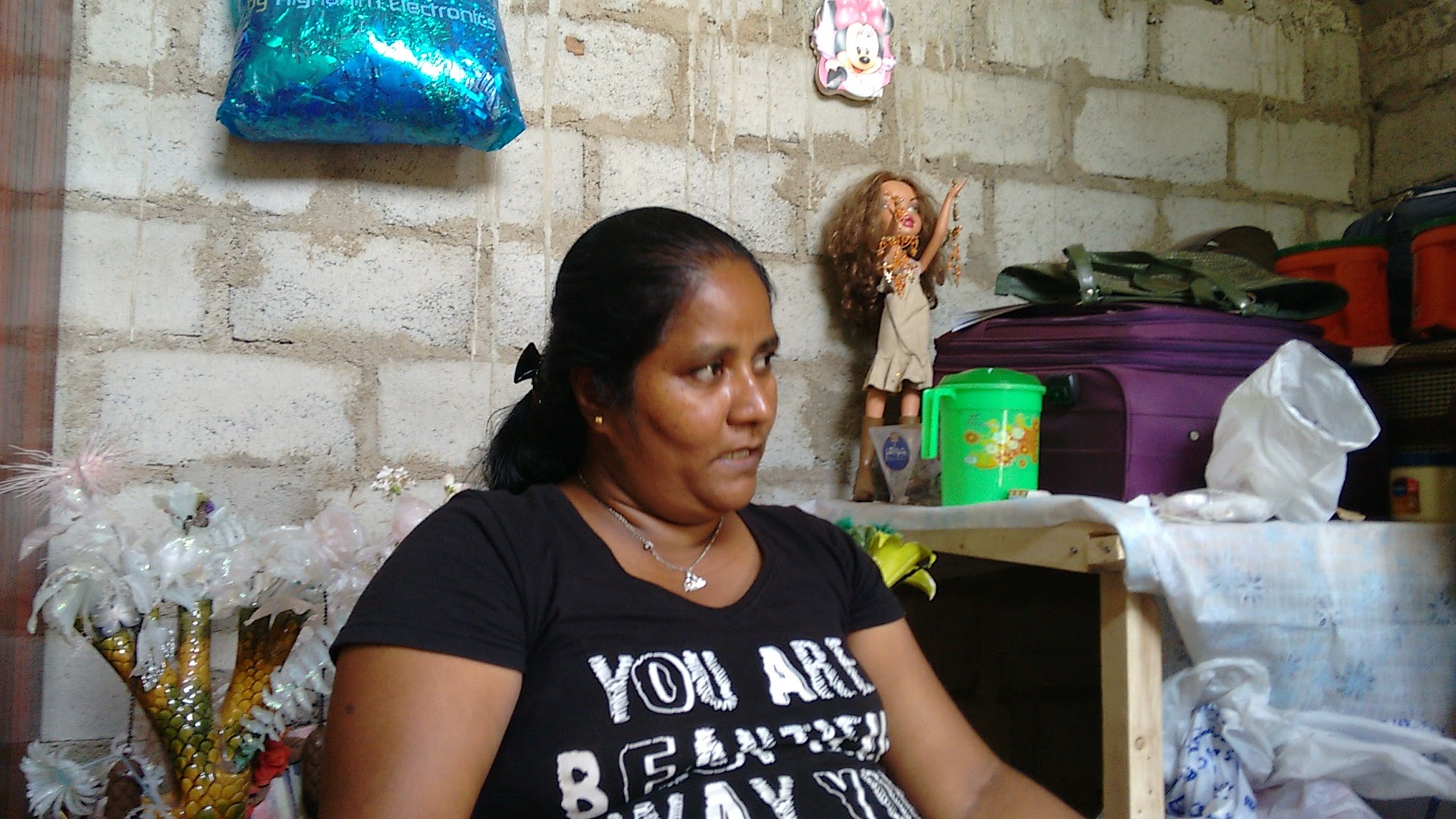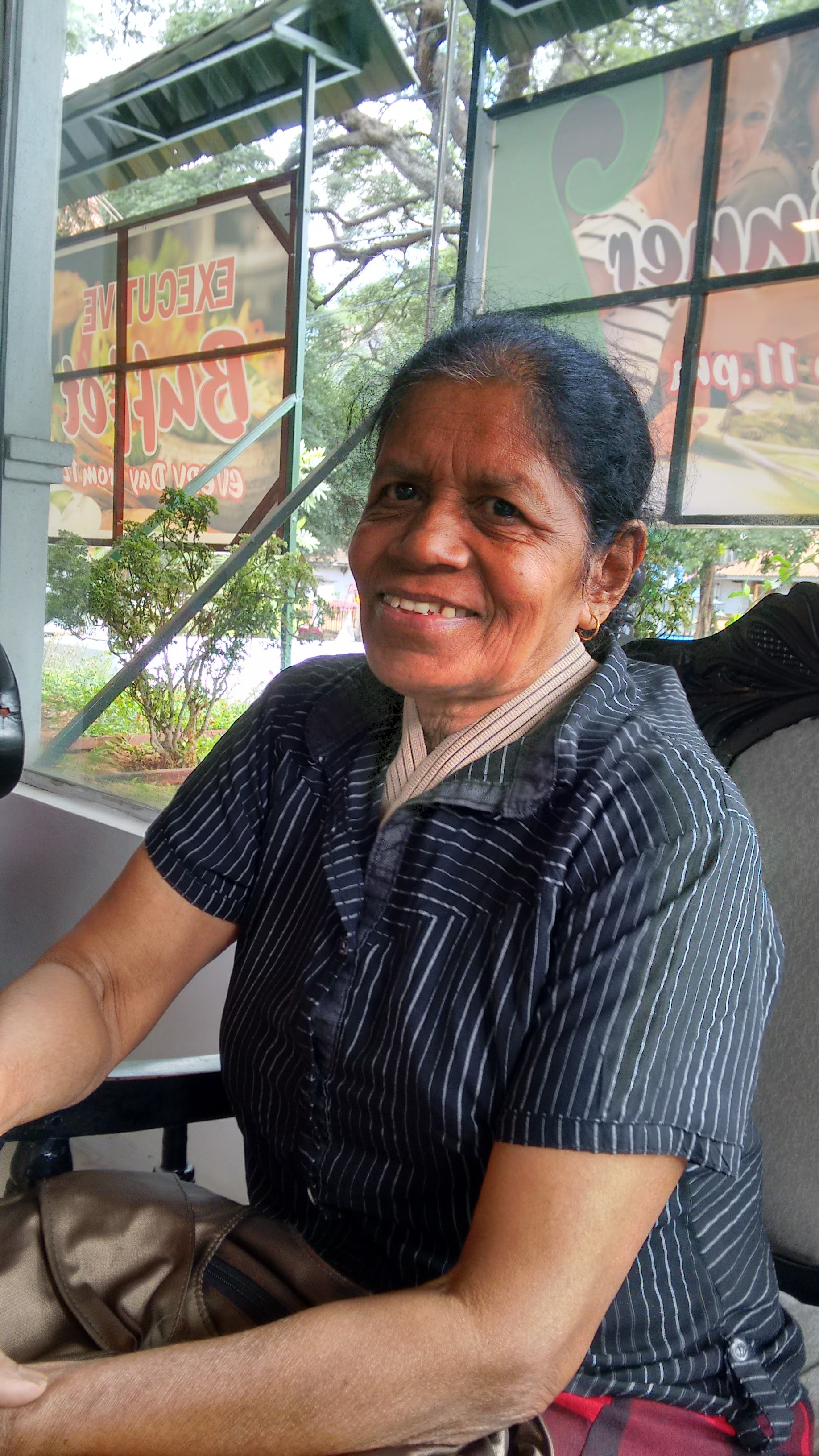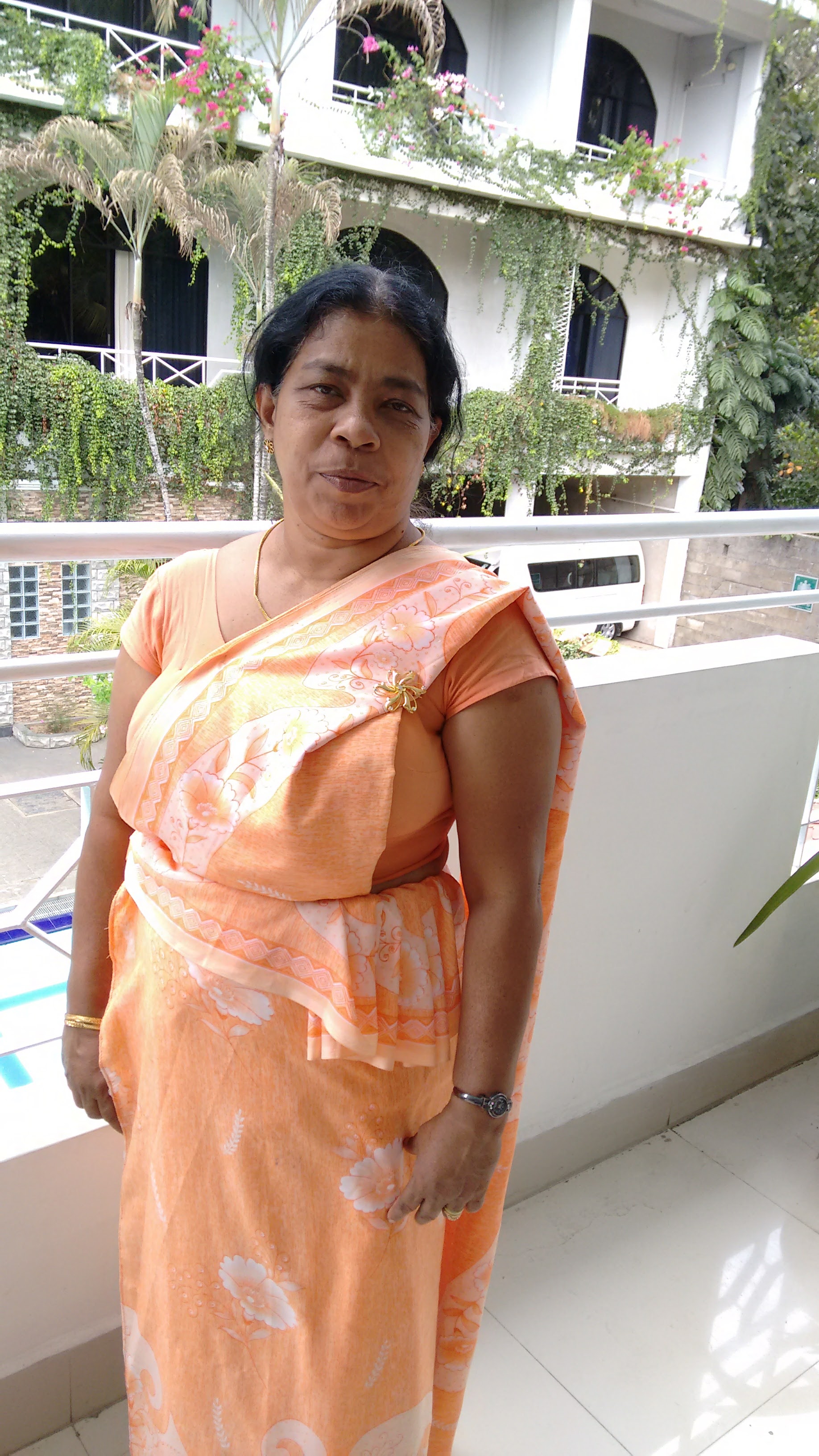In the second of a two-part series, Migrant-Rights.org speaks to women at different stages of the migration cycle. Serial migration seems to the be the only way they can get out of and stay out of poverty.
Naalika Tarangani’s house is a monument to all that the Gulf stands for in Asian households.
Cans of Tang, empty brown cartons, a blue Nivea tin, dolls in poly wrap and teddy bears with tags. The tiny room is crammed with souvenirs her savings could buy, and mark her out as one with a successful stint abroad.
For fifteen of the last 24 years, she has lived in two different countries over four different contracts. She first went to Kuwait in 1993, followed by two tours in Dubai, and then spent another five years in Kuwait before coming back home to Sri Lanka. She is not yet sure if this is it for her.
“I was just 19 years old the first time I went. There were 24 members in the family I worked for; in a 4-storeyed house. I was the only maid. But I had no choice but to continue, as I needed the money.”
How she was treated and what she endured changed little over the decade. There was a nominal rise in her salary, but most importantly, she learnt to speak up – to demand at least some of her own terms of employment.
The children, 6 and 9 years old, were very badly behaved. They would hit me.
Rather telling that the situation for domestic workers has remained stagnant to a large degree, even in a country that had recently passed legislation specific to these workers.
“Though paid on time, I was never allowed out. For the last five years I was with the same employer, never allowed to come back. Even if I went outside the gate to throw garbage, they will watch me. I was not allowed to talk to others. Initially, there was no proper meals. But I put my foot down. Told them clearly that I can’t work that way. They allowed me to prepare my own food. Because I threatened to complain to agent. I was paid 60KD first, then it increased to 75KD.”
She never got a day off, working till 3 a.m. and up again by 6 a.m. “There were six people initially, then the married daughters came back with their families so there was more work.”
Dilshani Nugawela, whom we spoke to earlier, says the majority of complaints received were from female migrants and more than half from those working in Saudi. As she mentioned earlier, there are 10 Foreign Employment Bureua officers covering Saudi alone, while other destination countries have just one each. The Gulf’s largest country continues to be the biggest challenge, with a flood of regular cases and few avenues for resolution.
She shares some figures on the complaints received. In May 514; 535 in June; 619 in July; 805 in August, 608 in September; and 623 in October.
“These complaints were of regular migrants alone, as only those registered with the bureau can file a complaint. Evidence shows at least 170 irregular migrants attempted to file a complaint,” she says.
Most complaints are about salary non-payment, a family's loss of contact with a relative abroad, and harassment. Death continues to be largest the complaint from families of male migrants.
“This is because men go to do construction work, with little training and ill-equipped for the job,” she explains.
At the end of the pre-departure training, there is a family day where the Bureau gives information to family members of migrants. Often it’s the husband who attends these sessions. But migration puts pressure on family relationships. So they are not there to follow through, she says.

Nilu is in a bind. She has not marketable skills, and the only way out of poverty is to migrate again. But the family background requirement makes that difficult for her.

Rajeshwari has had both good and bad experiences abroad, and as an educator knows pre-departure training alone will not change the lot of migrant workers in the Gulf.

Naalika returned recently, but she knows she has to do one more stint abroad at least to make the house a home.

Chandrawathie was happy with the family she worked for in Kuwait, even if the workload was heavy. However, an accident while working incapacitated her.

Nilu is in a bind. She has not marketable skills, and the only way out of poverty is to migrate again. But the family background requirement makes that difficult for her.

Rajeshwari has had both good and bad experiences abroad, and as an educator knows pre-departure training alone will not change the lot of migrant workers in the Gulf.
The ‘good’ people
D M Chandrawathie has never been married. She was the sole caregiver for her orphaned nieces and nephews. She has returned only recently, and not out of choice. Her body is in a brace, and she squirms in pain as she attempts to lower herself onto the chair.
“I went to Kuwait in 2010, and came back every year. It was a very caring family. Last month I came back for good. I slipped in the bathroom and fell. For 12 days I was hospitalised. Dislocated my hips. They took very good care of me,” she tears up.
Chandrawathie misses her Kuwaiti employers. She was earning 80KD a month, and had saved enough to construct a house, but has little by way of savings.
“They were very good to me. They gave me money before I came back and told me when I get better I should come back to them. There were seven children, and the parents. Other workers came and went, I was the one who stayed there throughout.”
She had no off day, but that doesn’t seem abnormal to her. “Fridays I didn’t have much work. Saturdays they took me out. I could prepare my own meals. There were no restrictions. If I can walk properly I will go back.”
Rajeshwari Subramanian is a volunteer educator. She speaks of the pattern. “What we understand is that families of men who have migrated show progress. Not so much in households where women have migrated. Because there is no financial plan for remittances. When a man migrates, the women plan better. They save, invest, build homes. You don’t see this with the husbands of women who migrate. They quite often live off the remittances without any thoughts for savings.”
Rajeshwari herself is a returnee migrant. She went to Abu Dhabi in 2000, when she was just 26. She went through a 7-day pre-departure training that didn’t really help. “The baba had two wives and 4 children. One child was disabled. So I had to carry her all the time. My wrists were affected badly, and they had to operate on me. They did take good care of me then. Got the neighbour’s maid to help out. I was paid 500AED.
“I worked for two years and laid the foundation for my house. That was all I could do. I had a clay house that was washed away.”
She went back to Kuwait next, in 2003, for what she describes as a ‘horrible’ experience. “They didn’t give me food even. They had two kids. Wife was at home. There was an Indian driver who cooked. I took care of all the household work. They wouldn’t even give me 10 minutes to eat. They will start calling me to come back to work. I would give some change to the driver and ask him to get me some kuboos. I was paid 40 dinars.
“The children, 6 and 9 years old, were very badly behaved. They would hit me. Go to my room and wreck things. Throw my clothes out. I was not allowed to lock my room even. The madam’s siblings would ask her why I was not being fed properly.”
The educators
Rajeshwari was scared to leave the house as she had heard that in the agency or embassy they would hit maids who ran away.
In her current work, she understands well why women make ill-informed decisions and stick to it. She also understands why they keep going back abroad. She works in the Rambadagalla area of the Kurunegala district. As we highlighted in Part 1 of the series, Kurunegala has one of the highest rates of migration in Sri Lanka.
“Almost all the women migrate as housemaids, men go as drivers etc. We survey and understand the problems they face. There are three categories that we tackle. Families of current migrants, returnees and potential. The returnees are also eager to go back. They have not met the goals they hoped for. Only about 5% seem to have met their goals.”
Rajeshwari went back to Saudi after her marriage, along with her husband Veerangan. This time to build her own home. “We went as a couple, to work in a household. When we landed in the airport, we were separated. We were kept in separate rooms in the airport. We only received a bun to eat. I didn’t know where my husband was. We were taken to another holding room. There were people there who were ‘unclaimed’ for even a year or two. Our ‘owner’ sent for my husband and me. They gave us a room together. He was a driver, I was doing household work. The couple had four children. We were there for two years.”
Rajeshwari had to return after an accident, and has since had a child who is now seven. “Now we need to secure her future. My husband has gone to Qatar, he is on a second contract now.”
She first heard of the educator programme from her niece, and felt she had a responsibility to be part of the process. “To make sure the women who migrate are safe. It is only because of migration that we have been able to buy land and build houses. Whatever the strife people will go as there is so little opportunities locally.”
Rajeshwari does support the FBR policy that disallows women with children under the age of five to migrate. There is a lot of abuse, and the mother has to be around, she stresses.
P G Leelawathie is a colleague of Rajeshwari’s. She worked in an insurance firm before doing two stints in Saudi Arabia.
“No awareness. No training. I just gave my passport to a agent and went to Dammam in 2004. The sum total of my Arabic knowledge was ‘Salam Aleikum’. I knew only Sinhala, so communication was a big problem. For quite a while I used body language to communicate, till I managed to learn some Arabic with help of the children of the house.”
Most female migrants are not allowed to keep a mobile and even calls from landline were restricted, she says.
That experience and the fact that agents were reluctant to talk about workers' rights made her realise that there was a critical need to educate prospective migrants.
Kurunegala echoes of such stories. Women exported with little else but a passport and hope for savings.
They read out the contract to me. And I put my thumb impression. I was 20...
Worse than most
W P Nilu stands rocking her toddler son in a makeshift cradle strung from the ceiling, as she recounts her days abroad. She lives in abject poverty, in a one-room house furnished with two plastic chairs and a coir floor mat. She picks up her son and straddles him on her hip, introducing him as Dhanush. Named after a famous Tamil movie actor from India.
She is hesitant at the start. Completely illiterate and fluent only in spoken Tamil and Sinhala, Nilu paid borrowed 20,000 Lankan rupees for a passport and medical test, and went to Kuwait in 2007.
Her aged mother, slightly inebriated, had a running commentary on everything her daughter said. The father sat by the door, grinning toothlessly, even as his wife blamed his ‘madness’ for her daughter being forced to migrate for money.
So why would someone with no reading or writing skills decide to travel thousands of miles overseas?
“The agent encouraged me to,” she shrugs. “They read out the contract to me. And I put my thumb impression. I was 20, what options did I have?”
There were 12 members in the Kuwaiti family, including 8 kids. “There were two of us maids. Within three months I learnt Arabic.”
She earned only 40KD (about USD130) a month and saved nothing. “Had to send money to my older brother, for him to buy a three-wheeler. Which meant I couldn’t save anything for myself. I also came back before end of contract, and went back in 2008. They paid me only for 4-5 months. After that, they were not paying me. So I couldn’t fight. I had to cut my losses and come back.”
Unlike many other ‘serial’ migrants, Nilu has not been able to improve the choices she makes. Not just because she was illiterate (even though Sri Lanka has a high 92% literacy rate), and hence had little access to migration literature, nor the ability to review her contract; she also hails from a highly marginalised community – a lower-caste Tamil in the Sinhalese-stronghold of Kurunegala.
Her last foray was to Saudi in 2011 was probably the worst, though she hopes it won’t be her last. “I worked in an Egyptian household in Dammam, for only three months. The employer was not good. They were not giving me food properly. Then once a month would take me to their mother’s home in Riyadh to work as well. I had to work in all their relatives home. Kids used to be very badly behaved.
“When I refused to work. They beat me up and refused to take me to the agency as I requested. They took me to the police. The police sided with me and asked them to pay me three-month unpaid wages and send me back within 10 days.”
Now with a child and no husband/father in sight, and parents incapable of caring for her son, Nilu would find it difficult to bypass the FBR, and will resort to irregular means of migration. With no bankable skills for employment in Sri Lanka, escape from poverty seems highly unlikely. Even as she shares that concern, she flashes a smile tinged with hope.
Previous: In Sri Lanka, men are free, women have a price tag





